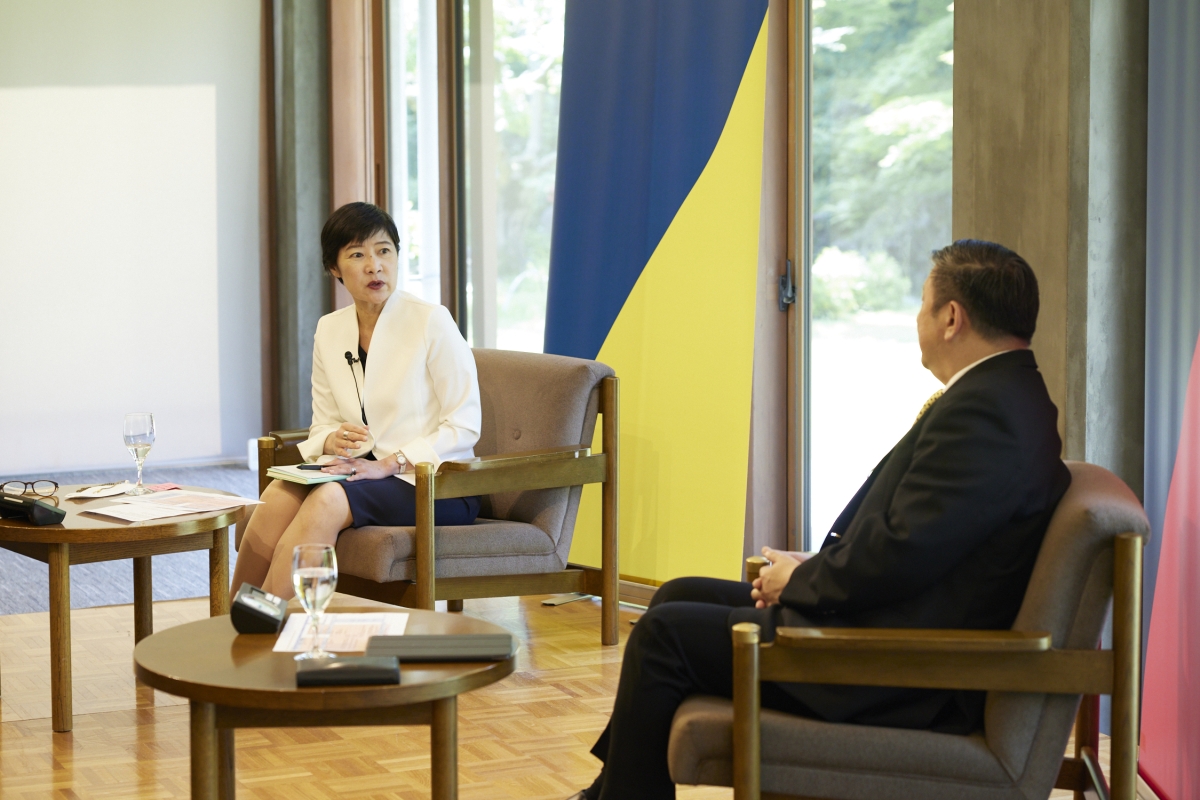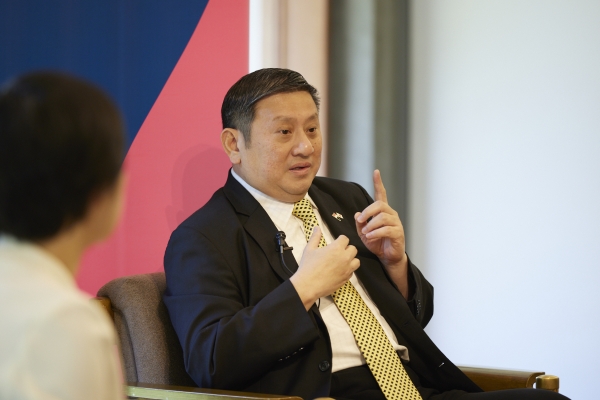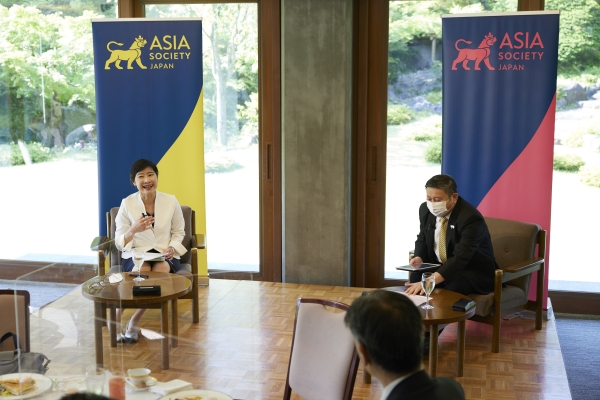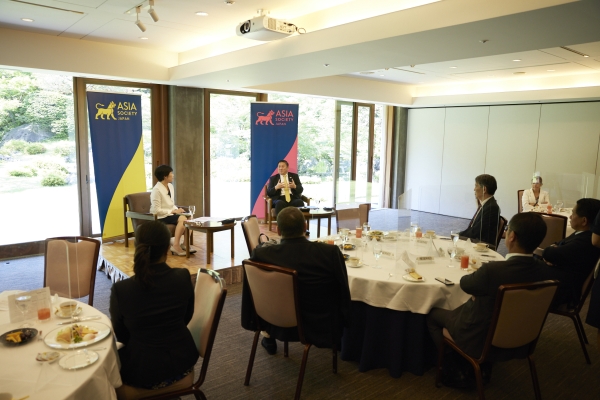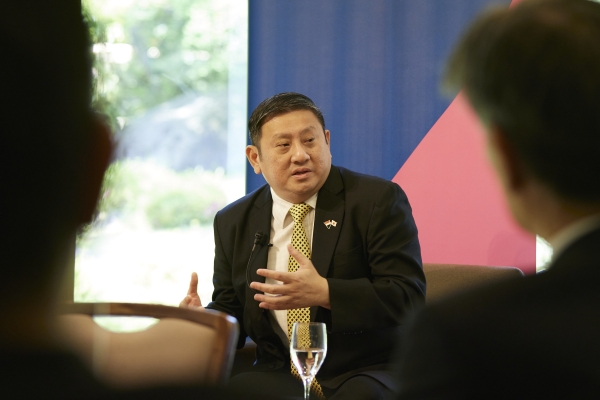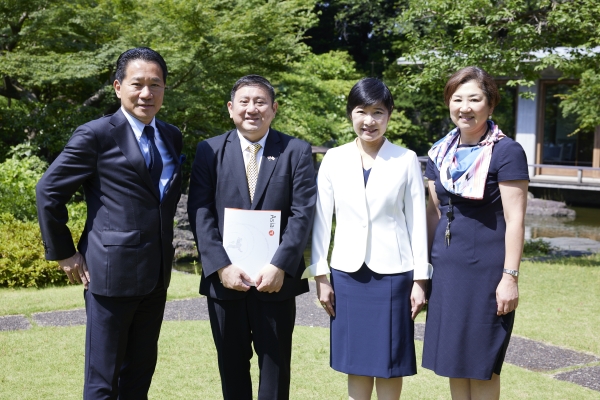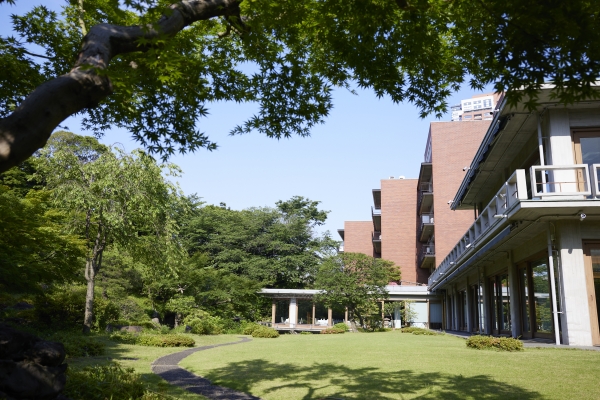Ambassadors’ Circle with the Singapore Ambassador (Recap)
On May 30, 2022, Asia Society Japan welcomed His Excellency Mr. Peter Tan to the Ambassadors’ Circle. He gave a presentation titled "Singapore-Japan Cooperation in a Changing and Challenging Global Environment" and engaged in a lively discussion with Japan ASPI Fellow Takako Hikotani as well as the audience at the venue and online.
The challenges of the post-Covid era
We are now living in challenging times, especially with two critical geopolitical developments – Russia’s attack on Ukraine, which poses a major threat to rule-based global order, and the increasingly difficult relations between the U.S. and China. If U.S-China relations should continue on this path, it is likely to lead to further bifurcation of technology and splitting of supply chains and even unintended consequences.
How should Singapore and Japan cope with these challenges to maintain a secure and stable regional environment and enable all countries to grow and prosper peacefully? We should maximize the opportunities for countries to work and prosper together and minimize the risk of tensions worsening into hostilities in order to prevent these challenges from occurring in the first place.
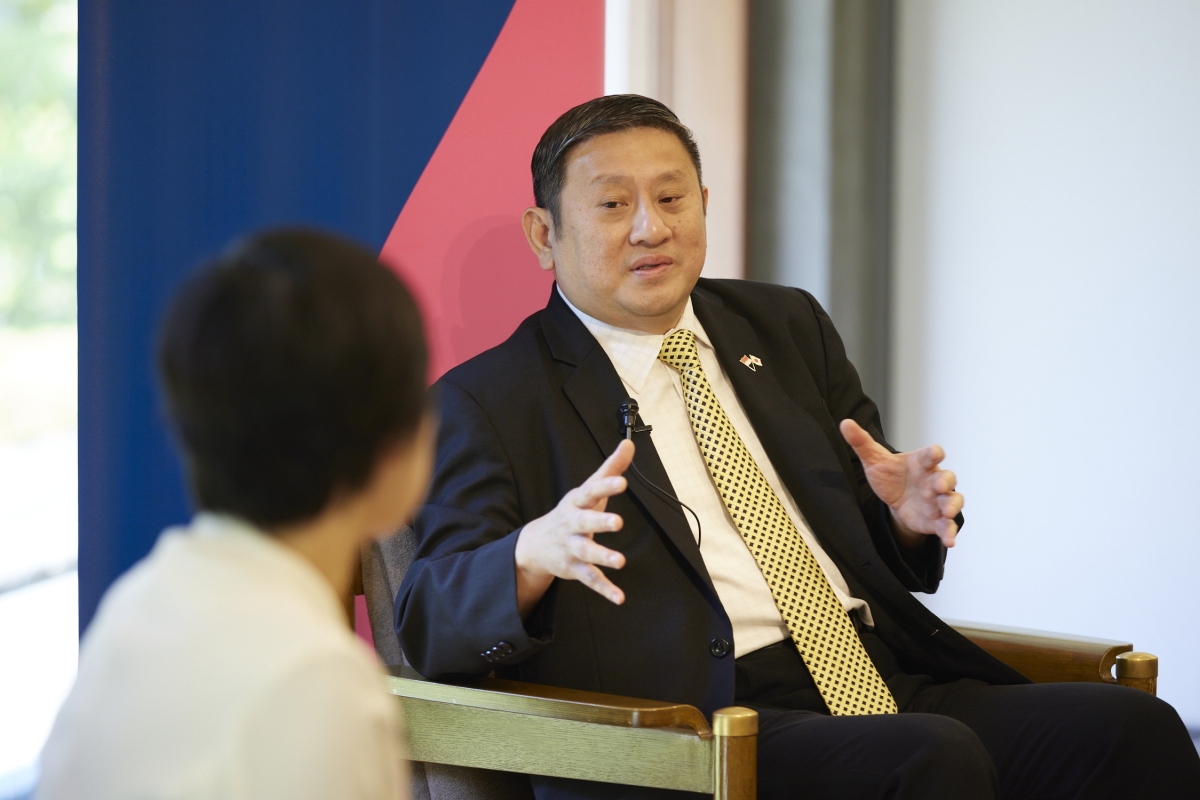
Prime Minister in town
The Prime Minister of Singapore visited Japan during the last week of May. One of the main topics of discussions with Japanese Prime Minister Kishida was bilateral collaboration in emerging areas, such as digitalization, innovation, green economy, and talent and leadership development. Another issue was reopening up the borders, which Singapore has already done and Japan will begin with scheduled tours.
Strong economic linkage
Strong economic linkage forms the centerpiece of Singapore-Japan relations, which are anchored in the 2002 Japan-Singapore Economic Partnership Agreement (JSEPA). Singapore and Japan continue to be among each other's top trading and investment partners. Japan plays a key role in strengthening regional supply chains.
Singapore and Japan are natural like-minded partners. Not only do the two countries share a commitment to upholding an open and rule-based system, they have a common goal of improving regional economic integration. Singapore appreciates Japan’s leadership role in bringing the Comprehensive and Progressive Agreement for Trans-Pacific Partnership (CPTPP) to conclusion after the U.S. withdrew from the original TPP. Singapore and Japan are also partners under the Regional Comprehensive Economic Partnership (RCEP) and the Indo-Pacific Economic Framework for Prosperity (IPEF).
Japan is also long-standing partner of ASEAN at both bilateral and regional levels. Japan has been instrumental in promoting the open, transparent, and inclusive regional architecture of ASEAN. It reached out to other countries amid the COVID-19 crisis by providing vaccines at a time of uncertainty and difficulties. ASEAN-Japan relations have been strengthened in multifaceted areas, including trade, climate change, and security.
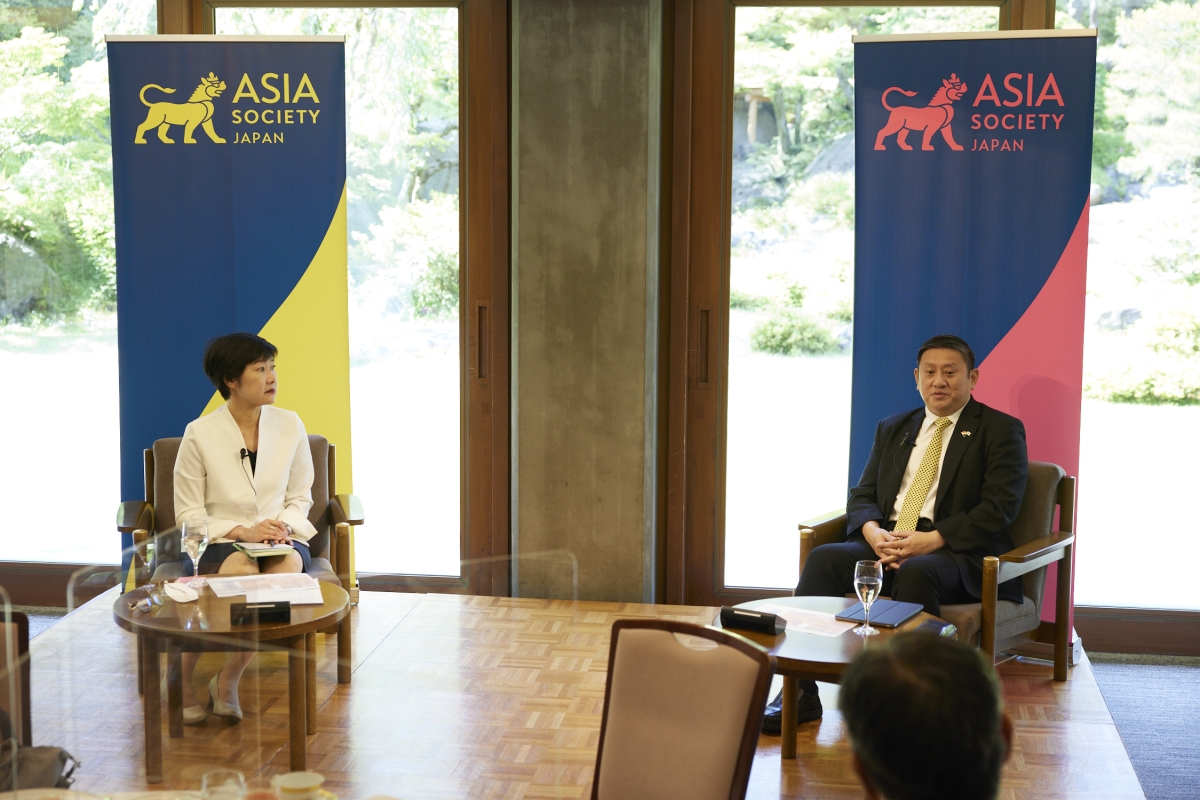
Navigating a post-COVID world together
Reinforcing our shared commitment in promoting a rules-based region and highlighting possible areas of closer cooperation are just some ways that Singapore and Japan, and ASEAN and Japan can come together, as the regions tries to navigate a post-COVID world in challenging times. Singapore hopes to maintain the momentum of Singapore-Japan, as well as ASEAN-Japan partnership as it seeks to fast-track our recovery from the COVID-19 pandemic.
Fireside chat with Professor Takako Hikotani
After the Ambassador’s initial comments, he engaged in a fireside chat with Professor Takako Hikotani (Gakushuin University / Fellow of Asia Society Japan) covering education exchange, the appreciation of diversity and the importance of exposing young people to an international environment, relations with China amid geopolitical change, and Singapore’s clear attitude towards Russia’s invasion of Ukraine which appears to be distinct from other ASEAN economies. When the floor was invited to ask questions, the conversation reached deeper into topics such as healthcare, entrepreneurship, immigration policy, the enablers of attracting foreign talent and investment, and energy policy.
